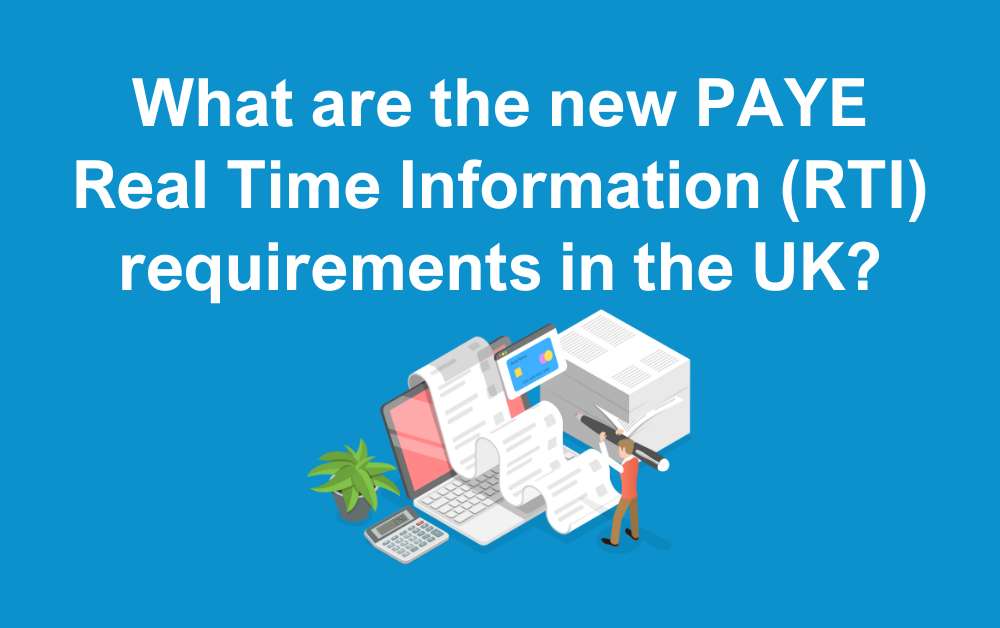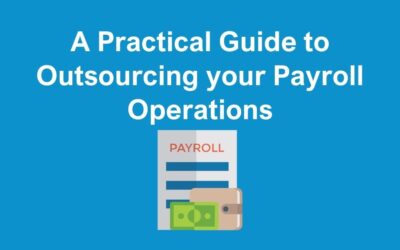Balancing the books is an important part of tax regulations.
If you run your own business and have staff you employ, you will be only too aware of the need to stay up to date with legislation and make sure you have the right software for the job.
PAYE is an integral part of the payroll process and HMRC have just introduced a new requirement which has placed an extra burden on all employers: the need to provide real time information.
We take a look at what the new Real Time Information requirements are and what they could mean for your business.
In a nutshell
The new reporting requirements – which are commonly known as RTI (Real Time Information) – came into force for the majority of companies with effect from April 2013. Some smaller firms have been permitted an extra six months but must be compliant by 5 October 2013.
To summarise, employers of any kind must now provide PAYE returns to HMRC either before or on the same day that your make the payment to your staff. Details are required even for individuals who are below the threshold, such as students or part-time workers.
Information about the deductions must be provided to HMRC electronically via a system known as Full Payment Submission (FPS) which will deliver the necessary information online.
How it will work
The RTI report will be compiled by the payroll software you use and automatically sent to HMRC using an online connection.
You will need to ensure that the software you are using is RTI-enabled. HMRC provides free access to a basic software package if you don’t have your own to use. There are also some other types of free RTI-enable payroll software packages in the market.
If you have a substantial workforce – running into thousands – it might be more appropriate to set up what is known as an Electronic Data Interchange (EDI). This is a type of network which allows data to be transferred easily and efficiently.
What information you need to send
You need to provide HMRC with details of every payment you make to an employee, regardless of how small the wage. This rule applies for limited companies too; your accountant should have made provisions for this already but you may want to check.
Make sure you know the tax requirements.
Your payroll software will automatically compile the reports which are needed for RTI but the following information should be included:
- The amount paid
- Deductions such as National Insurance Contributions and Income Tax
- Starting and leaving dates where applicable
However, you may need to also provide other information such as:
- EAS. This aligns your records with those HMRC holds. You will be told if you need to do this but usually only applies to large organisations or those which use more than one payroll system to administer their payments.
- NVR. This is a way of either verifying or obtaining a National Insurance number.
- EPS. If you need to let HMRC know about a drop in the amount you will be paying them or if no payments have been made to employees in any given period.
- EYU. A way of correcting year to date figures submitted for a previous tax year on a final FPS.
Documentation changes
Inevitably, the introduction of the RTI system means that some of the paperwork previously required by HMRC is now no longer required.
To save you completing forms that aren’t needed any more, here’s a rundown of the changes:
- End of year returns via P14 and P35 are obsolete. Your FPS replaces this along with the EPS if there are any monthly variations and EYU if you need to change details previously submitted.
- P45s should still be issued to employees but a copy does not need to be lodged with HMRC. Starter and leaver information on FPS provides the same details.
- P46, P46 (pen) and P46 (Ex Pat) have been replaced with starter and leaver details on the FPS.
- CA6855 cannot be used to trace or check a National Insurance number. Instead make the request using the NVR facility.
- P38(s), the form which relates to students employees has been superseded by payroll data on the FPS.
Conclusion
Whether you have your own payroll software or rely on your accountant to provide the service for you, it’s essential that you have everything ready for the implementation of RTI (if you haven’t already done so). Failure to meet the new requirements will be viewed very dimly and HMRC have indicated stiff penalties and fines will be dished out for companies that don’t comply. Don’t leave anything to chance!






